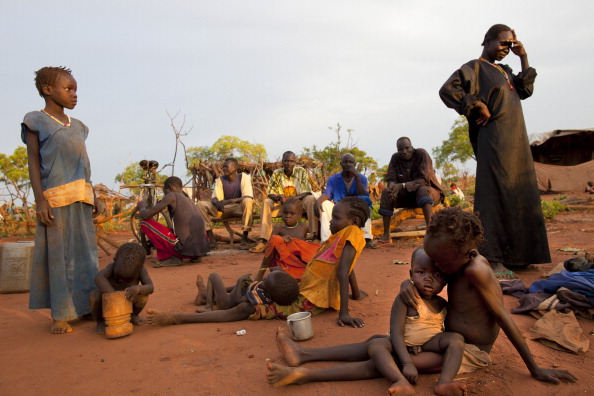Sudan – Deadly Attacks in the South
Recent ethnic clashes in southern Sudan have killed at least 25 people and displaced dozens of civilians in Upper Nile State since Friday. Violence has been escalating recently, as women and children are increasingly targeted by both tribal militias and the Ugandan rebel Lord’s Resistance Army (LRA).
The World Health Organization (WHO) also warned today that conflict-affected areas of southern Sudan, including Ezo County in Western Equatoria State where the LRA has been active recently, are facing a high risk of epidemics. WHO cites damaged health facilities, displaced health workers and the difficulty of accessing health facilities as contributing factors to this increasing risk for epidemics. Attacks in recent weeks have caused forced around 80,000 people to flee their homes.
In a separate development, Reuters reports that the NGO Global Witness claims that they have found serious discrepancies in reports of Sudan’s oil revenues, meaning that the Sudanese government may been underpaying the south by hundreds of millions of dollars. However, government officials denied all accusations made in the report and claimed to the BCC that the south was represented in all state bodies that dealt with oil.
Must Reads
Overheard
The violent clashes are different to the traditional ‘cattle rustling’ that normally occurs each year. Women and children, usually spared in this fighting, are now deliberately targeted and the number of deaths are higher than the number of wounded… The intention is to attack a village and to kill. The result is a population living in total fear, with significant humanitarian and medical needs – Jonathan Whittall, MSF Head of Mission in southern Sudan, September 3, 2009.
Abatement of violence and intertribal reconciliation in the south are vital to the forthcoming elections in 2010 and the subsequent referendum in 2011 – UN Secretary-General Ban Ki-moon, September 6, 2009.
Yemen – No End to the Violence
Clashes between government troops and rebel groups in Northern Yemen are ongoing and putting the lives of many civilians at risk. Displaced people in and around the city of Saada are trapped in the war zone, unable to leave and without access to humanitarian aid. Those who are able to leave the area have no choice but to use mined roads.
According to the BBC, a truce between the government and rebels which was agreed to on Friday, primarily to allow civilians to flee from the war zone, collapsed just a few hours later. Both sides blame the other for the continuing violence.
Meanwhile, the UN Refugee Agency (UNHCR) is waiting for security clearances in order to open a humanitarian corridor that would allow them to gain access through Saudi Arabia to displaced people in need of tents and other aid. The UN estimates that about 35,000 have been displaced by the fighting in the past three weeks alone.
Must Reads
Overheard
Heavy fighting between Al Houthi forces and government troops in and around Saada city in northern Yemen continues with utter disregard for the safety and well being of the civilian population – Andrej Mahecic, spokesman of the UNHCR, September 8, 2009
The children of Yemen need urgent assistance. We cannot fail them – Sigrid Kaag, UNICEF regional director for the Middle East and North Africa, September 8, 2009
Coming Up
- September 7-8: Southern African Development Community (SADC) summit in Kinshasa, DRC.
- September 8: Amnesty International releases new briefing on Chad, which uses satellite images to document housing demolitions in N’Djamena.
- September 8: Ousted Honduran President Manuel Zelaya meets with members of the OAS in Washington, DC.
- September 8: Head of UNHCR begins five-day trip to North Africa to visit refugees from Western Sahara.
- September 8: Inauguration of President-elect Malam Bacai Sanha in Guinea Bissau.
- September 10: Greek and Turkish Cypriot leaders due to resume UN-sponsored peace talks.
- Week of September 14: Israeli Prime Minister Benjamin Netanyahu to meet with Egyptian President Hosni Mubarak.
- September 15: 64th session of the UN General Assembly opens.
Juliette Rousselot contributed to this post.
Human Rights Flashpoints is a weekly column about countries at risk of escalating human rights violations and is brought to you by AIUSA’s Crisis Prevention and Response team.

 This year is the
This year is the 